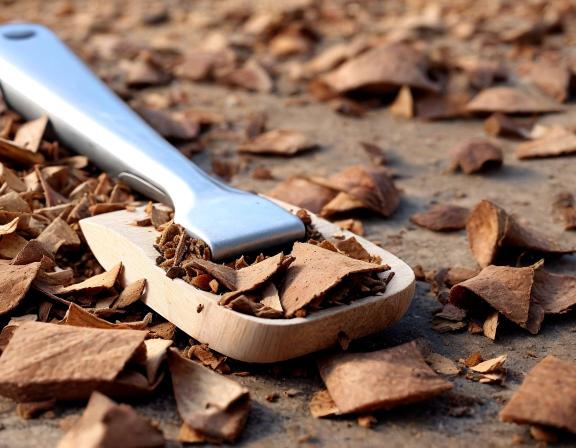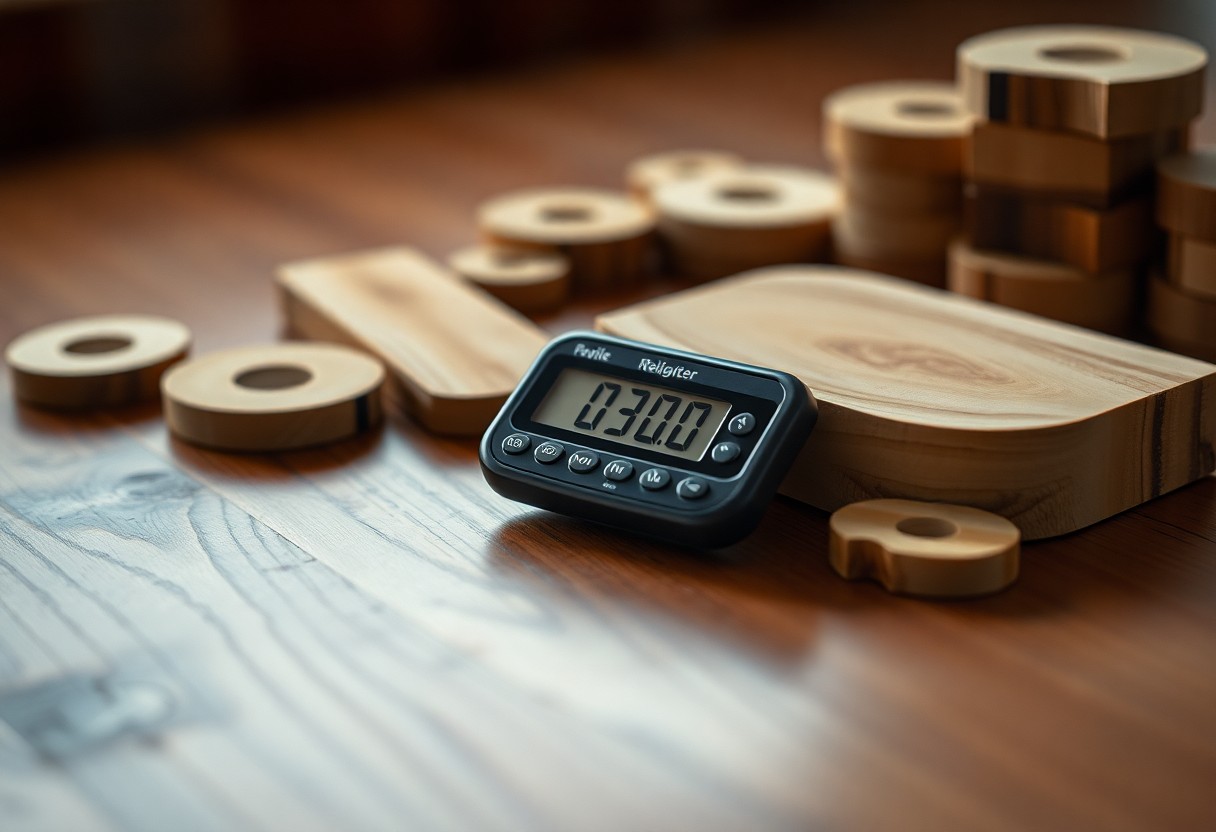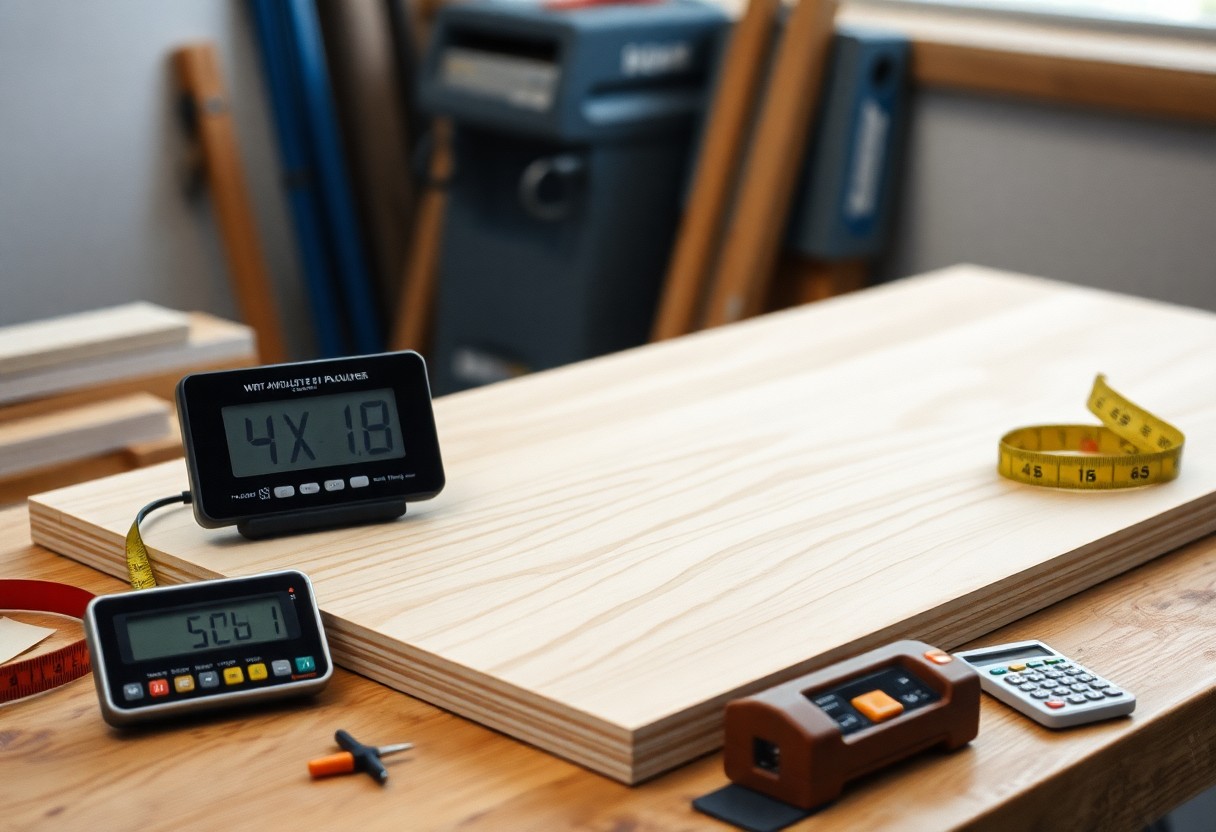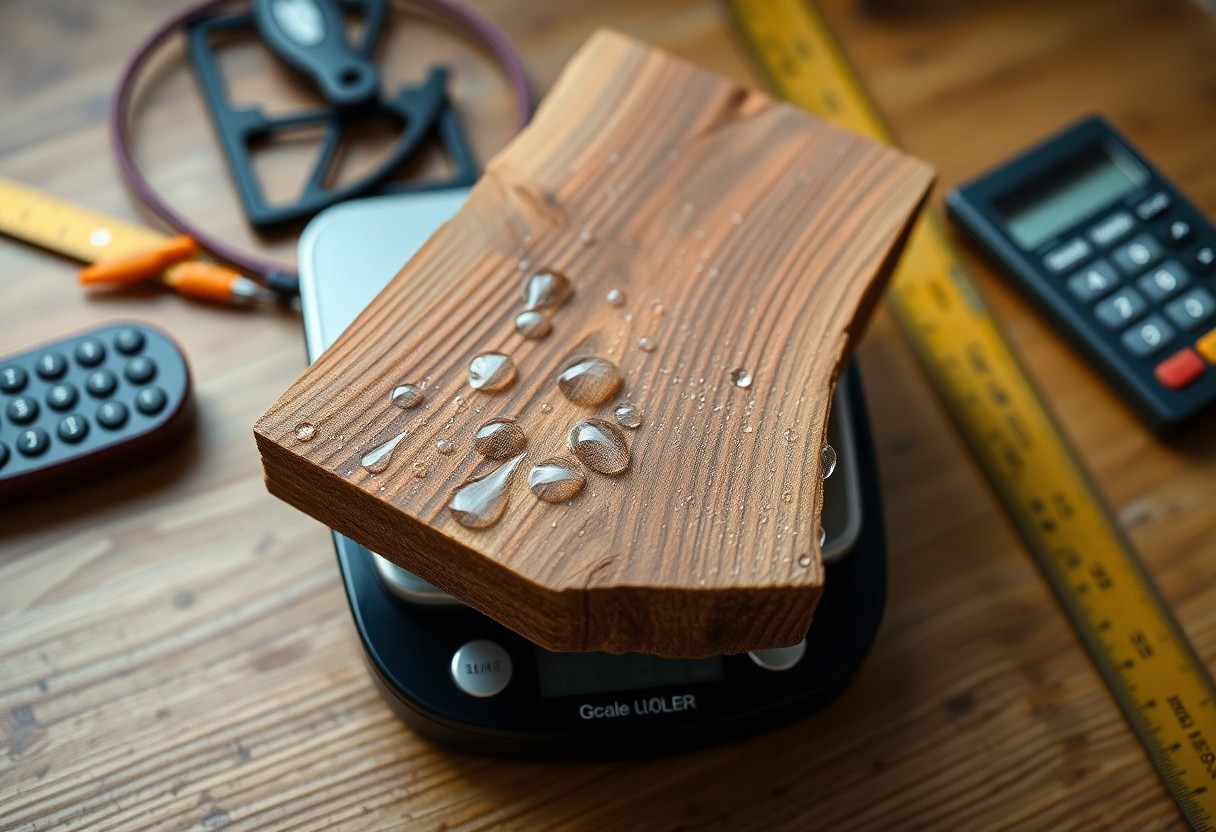When you’re working with wood chips, knowing their weight is crucial for getting the job done efficiently. You might need to transport them, store them, or calculate the quantity required for a project. But how do you determine the weight of those wood chips? That’s where a wood chips weight calculator comes in. With this tool, you’ll be able to quickly and accurately calculate the weight of your wood chips, saving you time and effort. In this post, we’ll guide you through how to use a wood chips weight calculator to get the most out of your wood chip endeavors.
Wood Chips Weight Calculator
Accurate weight calculation is imperative when working with wood chips, whether you’re a homeowner, landscaper, or wood chip supplier. Inaccurate calculations can lead to mistakes in ordering, transportation, and storage, resulting in wasted time, money, and resources.
Understanding the factors that affect wood chip weight and how to calculate it correctly is vital for a successful project.
Importance of Accurate Weight Calculation
Beneath the surface of seemingly simple wood chip calculations lies a complex web of variables that can significantly impact your project’s success. Below-average calculations can lead to costly mistakes, while accurate calculations ensure you have the right amount of wood chips for your project.
Factors Affecting Wood Chip Weight
Among the key factors influencing wood chip weight are the type of wood, moisture content, chip size, and density. You’ll need to consider these factors to get an accurate calculation. Some other factors to consider include:
- Species of wood
- Age of the wood
- Method of chipping
Recognizing these factors will help you make informed decisions about your wood chip needs.
At the heart of accurate weight calculation lies a deep understanding of these factors and how they interact. By considering the type of wood, moisture content, chip size, and density, you’ll be able to make informed decisions about your wood chip needs. Some other factors to consider include:
-
-
- Compression ratio
- Bulk density
- Packing efficiency
-
Recognizing these factors will help you make informed decisions about your wood chip needs.

Measuring Wood Chip Volume
The first step in calculating the weight of wood chips is to measure their volume. This can be done by determining the volume of the space occupied by the wood chips.
You can use various units to express volume, but cubic feet and cubic meters are the most common ones used in the wood chip industry.
Converting Cubic Feet to Cubic Meters
Before you start calculating the weight of your wood chips, you need to ensure you’re using the same unit of measurement throughout the process. If you’ve measured the volume in cubic feet, you can easily convert it to cubic meters by multiplying it by 0.028316.
Calculating Volume from Pile Dimensions
Before you can calculate the weight of your wood chips, you need to determine their volume. If you have a wood chip pile with a rectangular shape, you can calculate its volume by multiplying the length, width, and height of the pile.
Understanding the dimensions of your wood chip pile is key to accurate volume calculation. Take your time to measure the length, width, and height of the pile carefully, and make sure to record the values correctly. You can use a tape measure or a ruler to get the exact dimensions of the pile. Once you have these values, you can plug them into the formula to get the volume of the wood chips.
Determining Wood Chip Density
After you’ve collected your wood chips, the next step is to determine their density. This is important in calculating their weight, as density varies greatly depending on the type of wood and its moisture content.
Average Density Values for Different Wood Types
With different wood types comes varying density values. The average density values for different wood types are as follows:
-
-
-
- Softwoods: 350-450 kg/m³
- Hardwoods: 450-550 kg/m³
- Dry wood: 300-400 kg/m³
- Moist wood: 500-600 kg/m³
- Composted wood: 200-300 kg/m³
-
-
The information can be broken down into the following table:
| Wood Type | Average Density (kg/m³) |
| Softwoods | 350-450 |
| Hardwoods | 450-550 |
| Dry wood | 300-400 |
| Moist wood | 500-600 |
Measuring Density with a Scale and Calculator
The most accurate way to determine wood chip density is by measuring it yourself using a scale and calculator.
In addition, you’ll need to measure the volume of the wood chips by calculating the length, width, and height of the container they’re in. Once you have these values, you can plug them into the density formula to get an accurate measurement of your wood chip density.
Calculating Wood Chip Weight
All you need to know is the volume of wood chips and their density to calculate their weight. This process is straightforward, and with a few simple steps, you’ll be able to determine the weight of your wood chips accurately.
Formula for Weight Calculation
For calculating the weight of wood chips, you’ll use the formula: weight = volume x density. This formula takes into account the volume of the wood chips, usually measured in cubic feet or meters, and the density of the wood chips, usually measured in pounds per cubic foot or kilograms per cubic meter.
Examples and Practice Problems
Beside the formula, it’s imperative to practice calculating the weight of wood chips with different volumes and densities to get a better understanding of the process.
It’s in these examples and practice problems that you’ll see how the formula works in real-world scenarios. You’ll be able to calculate the weight of wood chips for various projects, from landscaping to construction, and gain confidence in your ability to do so accurately.
Common Challenges and Solutions
Unlike other materials, wood chips can be notoriously tricky to work with when it comes to calculating their weight. But don’t worry, with the right tools and techniques, you can overcome these challenges and get an accurate calculation.
Dealing with Moisture Content Variations
Against the unpredictable nature of wood chip moisture content, you need a calculator that can account for these variations. Look for a calculator that allows you to input the moisture content percentage, ensuring your weight calculation is accurate and reliable.
Handling Irregularly Shaped Piles
Handling wood chip piles that aren’t uniform in shape can be a real headache. To tackle this, use a calculator that can accommodate different pile shapes and sizes, giving you a more accurate weight calculation.
Further, when dealing with irregularly shaped piles, it’s vital to take into account the density of the wood chips. By considering both the shape and density of the pile, you’ll get a more precise weight calculation, ensuring you’re not left with any surprises down the line.
Advanced Calculations and Considerations
Many wood chip weight calculations require more than just basic math. You’ll need to consider factors like moisture content, chip size, and distribution to get an accurate weight.
-
-
-
- Moisture content affects wood chip density and weight
- Chip size and distribution impact how chips are packed and weighed
- Variations in wood species and quality influence weight calculations
-
-
| Factor | Impact on Weight Calculation |
|---|---|
| Moisture Content | Affects density and weight |
| Chip Size and Distribution | Impacts packing and weighing |
| Wood Species and Quality | Influences weight calculations |
Accounting for Wood Chip Size and Distribution
About the size and distribution of your wood chips: larger chips tend to be lighter, while smaller chips are denser and heavier. You’ll need to account for these variations to get an accurate weight calculation.
Using Software or Online Tools for Weight Calculation
Behind the scenes, specialized software and online tools can simplify complex weight calculations, saving you time and effort.
Advanced wood chip weight calculators can account for multiple variables, including moisture content, chip size, and distribution. By inputting your specific data, you can get a precise weight calculation, eliminating the need for manual calculations and reducing the risk of errors.
To wrap up
Ultimately, you’ve got the tools to tackle any wood chip weight calculation that comes your way. You’ve learned how to factor in moisture content, density, and volume to get an accurate estimate. Now, it’s time to put your newfound knowledge to the test. Go ahead, plug in your numbers, and watch your calculations unfold. With your trusty wood chips weight calculator by your side, you’ll be able to tackle even the most daunting projects with confidence.








